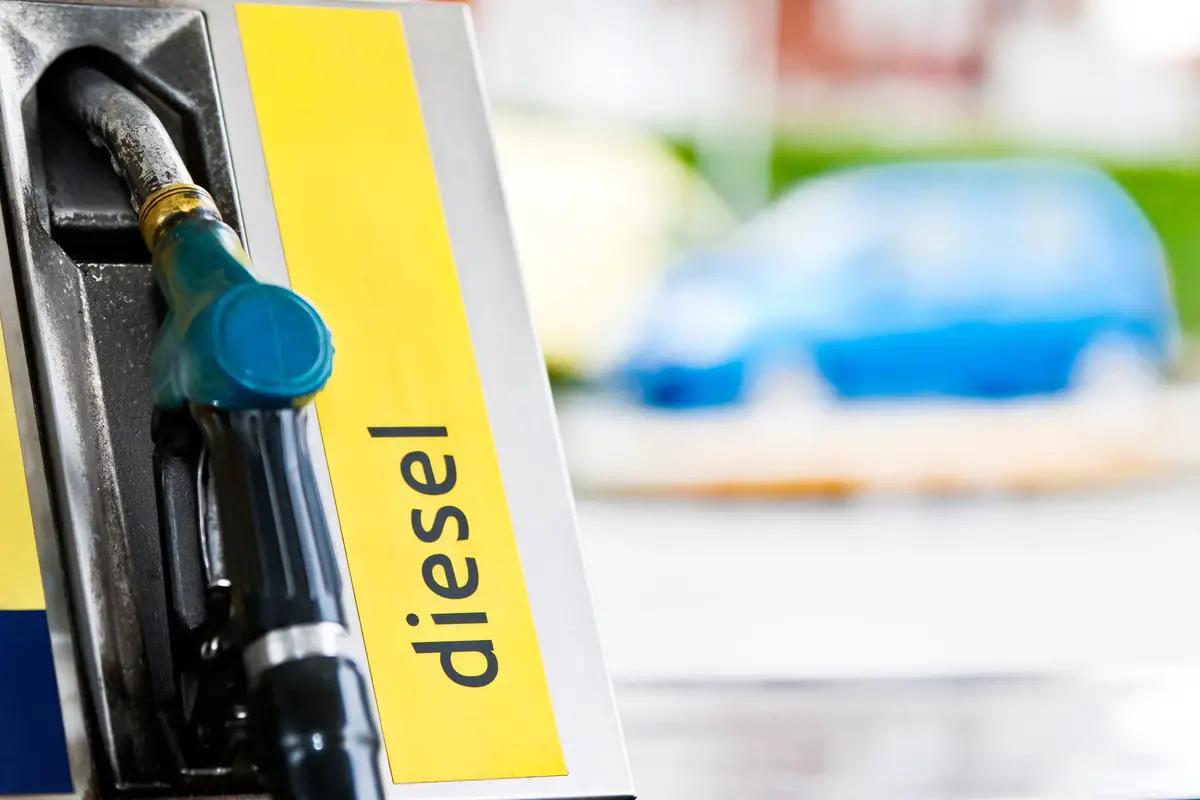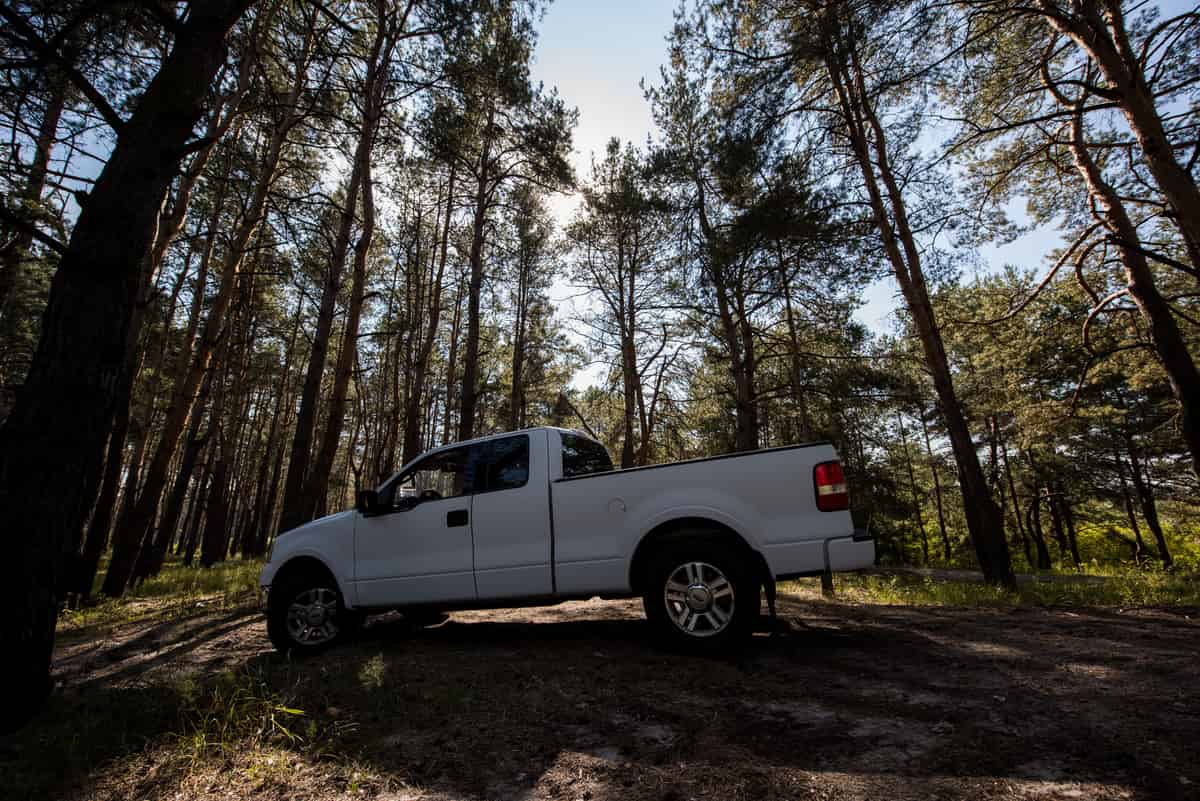If you are zipping along the freeway in your little Miata—or Prius or Optra or whatever—thoughts of Diesel engines are likely miles off. But then you come across a 34-wheel semi-truck with a Diesel engine that sounds…different from yours. Why is that?
Diesel trucks sound different because their engines operate on a higher combustion ratio than petrol engines. With such high pressure in the cylinders working to ignite a thicker fuel, an ominous “growl” is produced. Other factors that contribute to this sound include gear timing and larger parts.
This article will discuss why a Diesel engine sounds so different from a petrol engine. So keep reading until the end, and you may decide to come over to the Diesel side!

Differences Between a Diesel and a Petrol Engine
The fanciful, quiet, and dignified petroleum engine was invented in 1876 by Nikolaus August Otto. It was not especially efficient, using only about 10% of the fuel’s potential to produce power. This fact did not sit well with another engineer, Rudolf “Dolf” Diesel. Diesel wanted more efficiency and found it with his own invention.
So let’s look at what makes Diesel engines different from petrol ones:
- The Diesel engine operates on the Diesel Cycle (more on this below).
- Diesel engines rely on extremely high compression to ignite the fuel inside the cylinders, while a petrol engine mixes air and fuel first, then produces combustion with a spark.
- Diesel engines have increased torque to pull heavy loads.
- Diesel engines produce less horsepower than petrol engines.
Diesel engines sound different because while they rely on internal combustion, just like petrol power plants do, they achieve it through different means. Because these engines run hot, their parts tend to be more heavy and robust. Parts like these are going to sound boisterous more often than not.
More About the Diesel Cycle
The intention of our friend Dolf’s Diesel Cycle was to glean more efficiency from refined crude oil. His solution was to compress air very tightly in the cylinder chambers before mixing it with fuel. This is different from Otto’s method, which mixes air and fuel first, then ignites them with a spark plug.
The Diesel Cycle compresses air at a ratio of 20:1, whereas the Otto Cycle is more like 10:1. This extremely tight compression generates so much heat that it ignites the fuel spontaneously and produces a gruffer, grouchier sound than that of a petrol engine. And because Diesel fuel ignites on its own, without the aid of spark plugs, it does indeed burn more efficiently.
Another reason Diesel fuel is more efficient has to do with its thickness. In short, it’s thicker than petrol and thus evaporates more slowly. Mind you, efficiency doesn’t make the Diesel engine sound different, which is the focus of this piece. So let’s get back to some other reasons Diesel trucks growl the way they do.
Some Diesel Engines Use Gear Timing
The internal combustion engine is a complex beast. Some of them rely on up to one hundred electronic control units to regulate things like ignition timing, crash sensors, and security systems.
The valves and pistons in these engines also need regulating; otherwise, they would fire out of sync or not at all. Enter timing belts or timing chains. These belts (or chains) exist to maintain the most precise balance possible for an engine’s mechanical parts.
Diesel engines do not always use belts or chains to accomplish timing. Some rely on gear timing. Gear timing units are large, bulky, and noisier than belts and chains. When they kick in to do their job, the gears click or “mesh” to produce a metallic sound that’s easy to hear.
Diesel Engines Are Hot
I’ve already talked about how Diesel engines run hotter than petrol ones. Again, our culprit here is the high compression ratio. For fuel to spontaneously combust, you need heat.
And all that heat requires a tougher cooling system to keep the rest of the engine from going mad. This is the reason Dolf’s fantastic invention often comes with fantastically-sized radiator cooling fans. Not only are the fans bigger, but they have more blades and spin faster. This contributes toward making your Diesel engine sound different.
One more note about Diesel engine heat: most of the engine’s moving parts need to be larger and heavier to withstand higher temperatures. And they just don’t sound the same as the parts that move for a petrol engine.
Some Diesel Engines Have Engine Brakes
Back in Ohio, outside a little town called Monroeville, there is a sign: No Jake Braking. The reason for this sign lies with the town residents. They’d like to get a good night’s sleep, thank you very much.
Engine brakes are typically installed on big rigs that cross hilly terrain. Rolling down such hills sometimes gets to be a chore on rotor brakes. Engine brakes ease the pain by choking off the engine’s air intake and thus slowing it down. To operate them, the trucker flips an “on” switch, then lets off the accelerator. The engine brake kicks in to add years of life to the truck’s service brakes.
Are engine brakes noisy? Heh. Do cats like fish? Engine brakes produce a chugging, choking sound when activated. You can hear them from half a mile off, which is why they are outlawed in quiet little towns like Monroeville.

Conclusion
A higher combustion ratio is the main reason your petrol-powered engine is quieter than, say, the Ford F-350 6.7 liter. However, that isn’t the only reason.
There’s more under the hood of Diesel trucks than high compression. Some parts, such as cooling fans, are quite large, which means more noise. There’s also gear timing, engine braking, and overhead design.
While Diesels do sound different from petrol engines, their ability to produce more torque power makes them better at carrying heavy loads, and they sound a lot cooler coming down the road.
